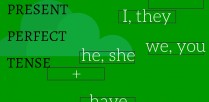If you think that there are too many words in the English language, remember that our dictionaries could be bigger; our language has doubled up definitions on many of its words.
Heteronyms, homonyms, homophones and homographs all become a confusing jumble especially when one attempts to use one these double-edged words while avoiding misspellings and misconstrued usage. When things get this complicated, it’s time to break out those dusty old dead languages as well as the Greek suffixes and prefixes, which are invaluable for deciphering the roots of these words.
The difference between homographs and heteronyms lies in the root words and a combination of factors affecting, spelling, pronunciation and meaning. There are also a variety of words with two meanings that include various similarities that bridge the gap between these three distinct segments.
Homophones are words that are pronounced in the same way but differ in their meanings. Words with different meanings and different spellings that are pronounced the same are also known a heterographs. Examples of words that sound the same but mean different things include there, their and they’re.
The term heteronym applies to words with two different pronunciations and two different meanings. The Greek word literally means different name. Examples based on the same word and different meaning effect include object and object.
Homographs are words that have the same spelling but are pronounced differently and have different meanings. For example, Polish and polish, dove and dove, and so on. The term literally translates to mean words with the same written record or depiction. These words are known as heteronyms, a term that translates to mean two unique definitions.
The title of the popular grammar book and tongue-in-cheek joke about the panda  that eats, shoots and leaves is a classic example of a homograph capable of functioning as verb and a noun with vastly different effects. In this case, the same word and different meaning of “shoots” changes the complexion of the sentence completely.
that eats, shoots and leaves is a classic example of a homograph capable of functioning as verb and a noun with vastly different effects. In this case, the same word and different meaning of “shoots” changes the complexion of the sentence completely.
The comedic affects of double-entendres, puns and malapropisms have been known for centuries. In Shakespeare’s Much Ado About Nothing, the playwriting legend coined the malapropism’s alternate synonym the “Dogberryism” with the snappy dialogue of Constable Dogberry, who declares in great triumph that he has captured two auspicious men during the night watch. During the same scene, the constable planted another timeless one-liner when he famously says “comparisons are odorous” instead of odious.
Here are a few examples of words with two meanings:
1. After taking a shot with his bow, the archer took a bow.
2. I had to console my mom after I sold her console.
3. No one could believe how much produce our garden could produce.
4. There’s no dessert in the desert for those who desert.
5. The family was hoping their live plants would live.
6. There’s simply no use for something you can’t use.
7. They were going to project the project at the local theater.
8. It’s not easy to resume work without a resume.
9. The band booked the studio to record their record.
10. Everyone knows it’s not lady-like to intimate with intimate apparel.
11. The salesman was standing so close it was impossible to close the door.
12. The rebel seized the opportunity to rebel.
13. The artist worked for hours to perfect the nearly perfect work.
14. The sport agent’s resigning affected the star’s resigning.
15. The incense incensed the customers.
Do you have any favorite linguistic snafus or words with two meanings? Please feel free to share them in comments.







